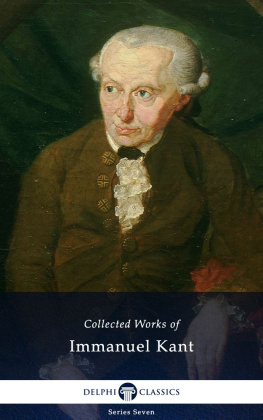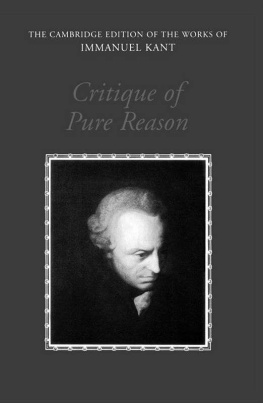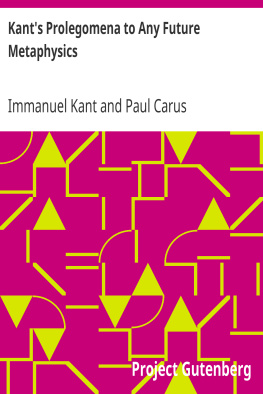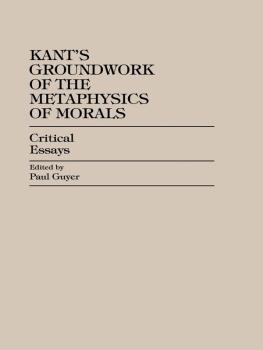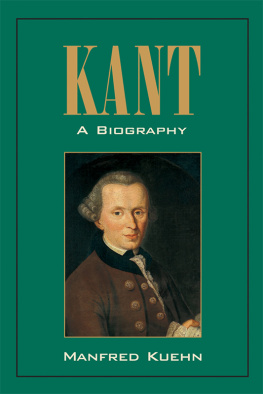Immanuel Kant - The Metaphysics of Morals
Here you can read online Immanuel Kant - The Metaphysics of Morals full text of the book (entire story) in english for free. Download pdf and epub, get meaning, cover and reviews about this ebook. year: 1996, publisher: Cambridge University Press, genre: Science. Description of the work, (preface) as well as reviews are available. Best literature library LitArk.com created for fans of good reading and offers a wide selection of genres:
Romance novel
Science fiction
Adventure
Detective
Science
History
Home and family
Prose
Art
Politics
Computer
Non-fiction
Religion
Business
Children
Humor
Choose a favorite category and find really read worthwhile books. Enjoy immersion in the world of imagination, feel the emotions of the characters or learn something new for yourself, make an fascinating discovery.

- Book:The Metaphysics of Morals
- Author:
- Publisher:Cambridge University Press
- Genre:
- Year:1996
- Rating:5 / 5
- Favourites:Add to favourites
- Your mark:
- 100
- 1
- 2
- 3
- 4
- 5
The Metaphysics of Morals: summary, description and annotation
We offer to read an annotation, description, summary or preface (depends on what the author of the book "The Metaphysics of Morals" wrote himself). If you haven't found the necessary information about the book — write in the comments, we will try to find it.
The Metaphysics of Morals — read online for free the complete book (whole text) full work
Below is the text of the book, divided by pages. System saving the place of the last page read, allows you to conveniently read the book "The Metaphysics of Morals" online for free, without having to search again every time where you left off. Put a bookmark, and you can go to the page where you finished reading at any time.
Font size:
Interval:
Bookmark:
CAMBRIDGE TEXTS IN THE HISTORY OF PHILOSOPHY
IMMANUEL KANT
The Metaphysics of Morals
CAMBRIDGE TEXTS IN THE HISTORY OF PHILOSOPHY
Series editors
KARL AMERIKS
Professor of Philosophy at the University of Notre Dame
DESMOND M. CLARKE
Professor of Philosophy at University College Cork
The main objective of Cambridge Texts in the History of Philosophy is to expand the range, variety and quality of texts in the history of philosophy which are available in English. The series includes texts by familiar names (such as Descartes and Kant) and also by less well-known authors. Wherever possible, texts are published in complete and unabridged form, and translations are specially commissioned for the series. Each volume contains a critical introduction together with a guide to further reading and any necessary glossaries and textual apparatus. The volumes are designed for student use at undergraduate and postgraduate level and will be of interest not only to students of philosophy, but also to a wider audience of readers in the history of science, the history of theology and the history of ideas.
For a list of titles published in the series, please see end of book.
IMMANUEL KANT
TRANSLATED AND EDITED BY
MARY GREGOR
WITH AN INTRODUCTION BY
ROGER J. SULLIVAN
University of South Carolina

CAMBRIDGE UNIVERSITY PRESS
Cambridge, New York, Melbourne, Madrid, Cape Town, Singapore, So Paulo, Delhi, Mexico City
Cambridge University Press
The Edinburgh Building, Cambridge CB2 8RU, UK
Published in the United States of America by Cambridge University Press, New York
www.cambridge.org
Information on this title: www.cambridge.org/9780521562171
Cambridge University Press 1996
This publication is in copyright. Subject to statutory exception and to the provisions of relevant collective licensing agreements, no reproduction of any part may take place without the written permission of Cambridge University Press.
First published 1996
18th printing 2013
Printed and bound in the United Kingdom by the MPG Books Group
A catalogue record for this publication is available from the British Library
Library of Congress cataloguing in publication data
Kant, Immanuel, 17241804.
[Metaphysik der Sitten. English]
The metaphysics of morals/Immanuel Kant; translated and edited by Mary Gregor; with an introduction by Roger J. Sullivan.
p. cm. (Cambridge texts in the history of philosophy)
Includes bibliographical references and index.
1. Ethics. Early works to 1800. 2. Duty Early works to 1800.
3. Virtue Early works to 1800. I. Gregor, Mary. II. Title. III. Series.
B2785.E5G7413 1996
170dc20 9544890 CIP
ISBN 978-0-521-56217-1 hardback
ISBN 978-0-521-56673-5 paperback
Cambridge University Press has no responsibility for the persistence or accuracy of URLs for external or third-party internet websites referred to in this publication, and does not guarantee that any content on such websites is, or will remain, accurate or appropriate.
A sketch of Immanuel Kants life takes very little space. Except for a conflict with the royal censor over his writings on religion, he led the quiet life of a faculty member within a small eighteenth-century European university. He was born in Knigsberg, East Prussia, 22 April 1724, and he died there 12 February 1804, never having left the Knigsberg area, where he taught first as a private tutor and then, for some twenty-five years, served as Professor of Logic and Metaphysics. So influential have been his publications, however, that, like Plato before him, no one after him could do philosophy without taking him into account. Even today his remains the premier moral theory. Although his political philosophy has not had the same impact as his ethical doctrines, it did anticipate the classical liberalism underlying republican forms of government today.
Kant had written about morality in several of his earlier works, but The Groundwork (or Foundations) of the Metaphysics of Morals, published in 1785, was his first book devoted exclusively to ethical theory. As its title indicates and as Kant also stated in its preface, this book was intended to provide the foundations or groundwork for a future work entitled The Metaphysics of Morals. He had claimed to be writing a book on that topic as early as 1768, but he did not actually publish this volume until 1797. (The Critique of Practical Reason was published in 1788 and the Critique of Judgment in 1790.) Given the time he had to think about its contents and the fact that he waited until near the end of his professional life to issue it, presumably The Metaphysics of Morals reflects his most mature views on the topics discussed in it. Strangely enough, however, most people interested in Kants moral theory have tended to neglect The Metaphysics of Morals and have devoted themselves instead to analyzing the volume meant only to be its introduction. They have thought that the first half of the later volume, the Doctrine of Right, does not fit in at all with his moral theory, and they also have rejected everything in the second half, the Doctrine of Virtue, that does not agree with the ways in which they had already interpreted the Groundwork.
By itself, the Groundwork has proved to be a very difficult work to understand. Moreover, putting things precisely requires a technical vocabulary and a formal style that makes it highly unlikely that the ideas discussed can be put in a form suitable for popular consumption. Nonetheless, when those who read The Metaphysics of Morals with an open mind return to the Groundwork, they then tend to find themselves reading a different book, one with doctrines clearly set out that earlier had inexplicably eluded them, and with this new reading many of their former objections also tend to disappear.
To try to achieve clarity and accuracy, Kant developed his own technical vocabulary. The title of The Metaphysics of Morals already confronts us with two of those terms, namely, metaphysics and morals.
On page 6:216 of the German edition of The Metaphysics of Morals Kant defines metaphysics as a system of a priori cognition from concepts alone (see p. 10 of this edition). This, of course, is not very helpful unless we know what a priori cognition is. According to Kant there are just two fundamental sources of cognition or knowledge our own reason and experience, that is, what comes to us through our senses. Kant describes the latter, empirical knowledge, as learned in an a posteriori way, that is, from or after experience. By contrast, knowledge originating just in the activity of the mind gives us the conceptual framework that enables us to have experience. For that reason we become aware of it in the course of our experiences even though it is not drawn from any sensory experiences we have. Kant calls this a priori cognition or knowledge originating in an a priori way, that is, before experience, and making experience possible.
There are two kinds of a priori knowledge pure and mixed. Pure a priori knowledge, which is found mainly in logic, consists of the formal manipulation of symbols according to the requirements of reason alone. (Logic, then, is presupposed in all our other thinking.)
Next pageFont size:
Interval:
Bookmark:
Similar books «The Metaphysics of Morals»
Look at similar books to The Metaphysics of Morals. We have selected literature similar in name and meaning in the hope of providing readers with more options to find new, interesting, not yet read works.
Discussion, reviews of the book The Metaphysics of Morals and just readers' own opinions. Leave your comments, write what you think about the work, its meaning or the main characters. Specify what exactly you liked and what you didn't like, and why you think so.


